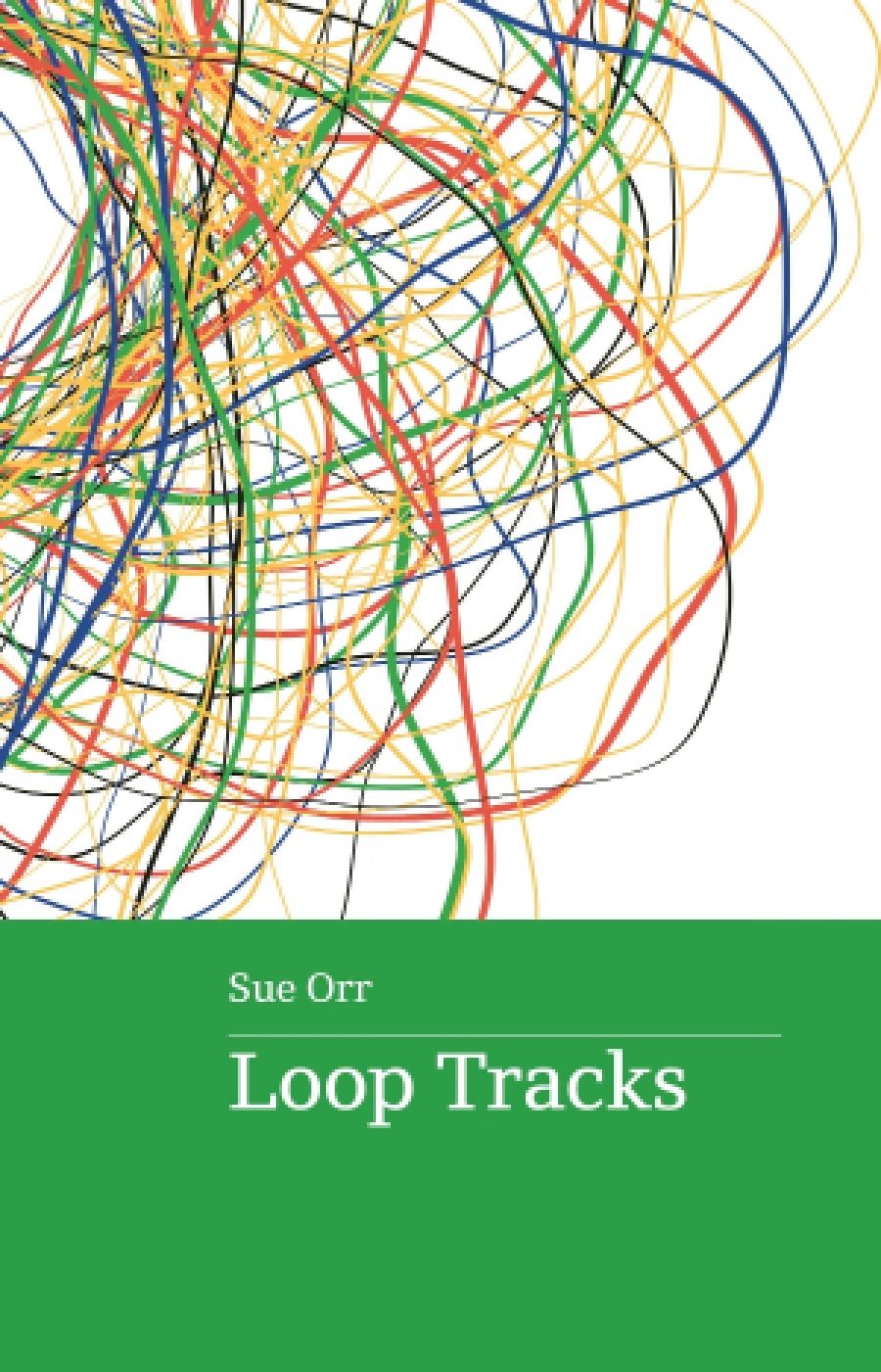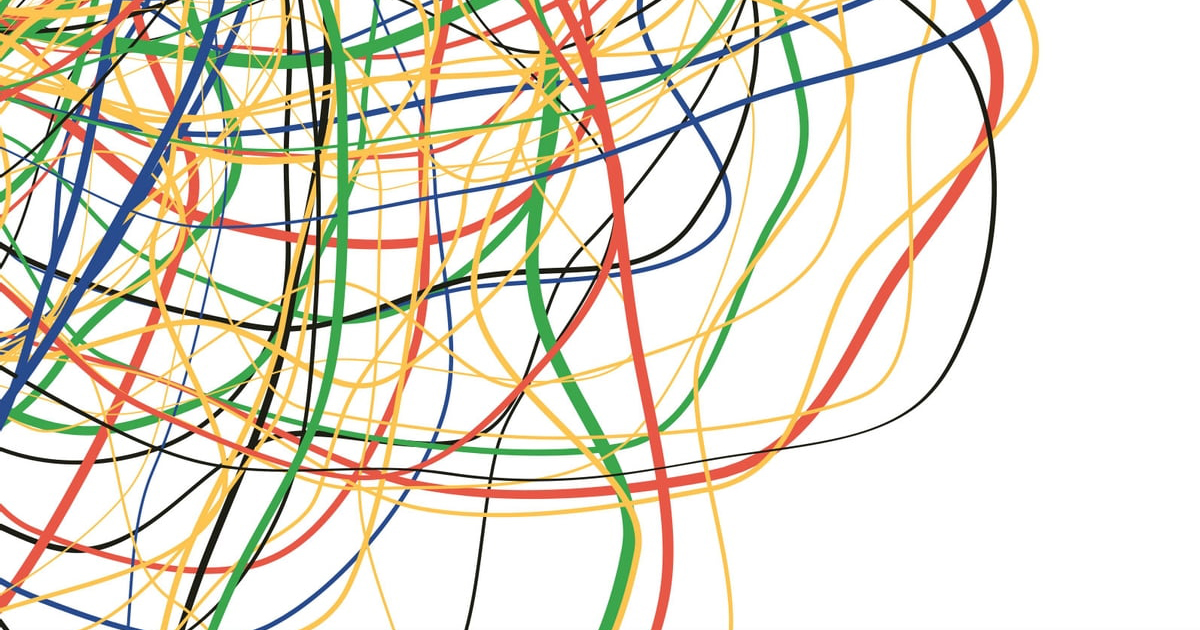
- Free Article: No
- Contents Category: Fiction
- Review Article: Yes
- Article Title: Spirals and echoes
- Article Subtitle: Sue Orr’s second novel
- Online Only: No
- Custom Highlight Text:
After being published to acclaim in Aotearoa by Victoria University Press in 2021, Sue Orr’s Loop Tracks was picked up by Terri-ann White, formerly of UWA Publishing, now at Upswell Publishing. A second-time novelist, Orr is represented by agent Martin Shaw, who has also supported authors such as Pip Adam and Ingrid Horrocks to be published across the Tasman.
- Featured Image (400px * 250px):

- Alt Tag (Featured Image): Brigid Magner reviews 'Loop Tracks' by Sue Orr
- Book 1 Title: Loop Tracks
- Book 1 Biblio: Upswell Publishing, $29.99 pb, 334 pp
- Book 1 Readings Link: booktopia.kh4ffx.net/RyaOab
Loop Tracks features a slightly wonky, freestyle Spirograph image on the cover, an image Orr’s protagonist, Charlie, describes as a ‘dahlia’. She reflects on the Spirograph as part of her childhood, which was abruptly ended by pregnancy at fifteen. The novel moves between Charlie’s predicament in 1978 and the New Zealand lockdown of 2020.
In the days before lockdown, Charlie’s autistic grandson Tommy returns from a gig where he has seen and heard a looper pedal in action for the first time. Tommy is fascinated with the spirals of recorded sound that seemed to go on and on endlessly when in fact there must be a finite number. Charlie reflects:
I wonder how he saw it: whether music and math moved in the spirographical circles of my favourite childhood toy, whether there was any room at all for warm pulsing human bodies on the dance floor of his mind … Tommy likes his loops intact: connected, sturdy in infinite construct.
 Sue Orr (photograph via Penguin Australia)
Sue Orr (photograph via Penguin Australia)
This novel is formally organised around loops – Charlie’s repetitive knitting, bush tracks circling the city and of course, the looping of time and of the narrator’s thoughts with regular flashes from her difficult past. The central drama is the adoption of Charlie’s baby in the late 1970s. Like many young women, she was compelled to erase this chapter from her official record and pretend it never happened. She describes this traumatic period as a ‘dirty smudge’ – the more you try to clean it up, the more it spreads, leaving ‘indelible traces of itself everywhere.’
Charlie’s teenage naïveté is both comical and confronting. A series of misunderstandings ultimately prevents her from going through with an abortion, partly triggered by her reading of glossy magazines while the plane to Sydney (a common destination for New Zealand women seeking abortions) is delayed. Hungry and nauseous, Charlie walks off the delayed plane. As a flight attendant struggles to recall her, the aircraft departs. Once spellbound by daydreams about the young man responsible for the pregnancy, Charlie realises that he is never going to be in the picture.
In the acknowledgments, Orr thanks a friend whose story was the kernel for the novel and the doctor and trail-blazing abortion advocate Margaret Sparrow, who fought for women’s reproductive rights. Through Charlie’s story, Orr criticises the practice of forced adoption, which redistributed babies, often through underhanded means, causing lasting devastation. Charlie recalls that teenage mothers were made to deliver on their sides so they didn’t see their babies, making them easier to remove.
A few years after the airport incident, Charlie catches a plane to start studying linguistics in Wellington but finds that the echoes of the missed flight are still with her: ‘These days we call it triggering, but back then it was just a really bad churning of your guts, followed by a freefall of thoughts and words into a smouldering silent panic.’ She develops a disfluency that leaves her literally speechless at times and she ‘slips sideways’ and abandons her studies for another career path.
We are not told much about Charlie’s life post adoption but gather it has been difficult, including strained relationships with her parents who die early, a brief marriage and no other children, until her four-year-old grandson Tommy is dropped off by his angry father. Tommy’s neurodiversity means that he does not feel any shame about his heritage – something that Charlie feared – instead the cycle of shame and anger ends with him.
Despite the potential for dullness, Orr manages to create a coherent narrative out of people staying at home during the 2020 lockdown. With Tommy and his girlfriend living with her, you might expect a cosy family dynamic, but the return of Charlie’s estranged son unsettles any sense of domestic harmony. We see the characters drifting apart – Charlie begins a romance with an expat neighbour while surreptitiously smoking by the hedge, prompting a reconnection to a ‘sassy’ younger version of herself, Tommy resorts to compulsively compiling Covid statistics day and night.
Like the experience of lockdown, this section of the narrative has a breathless quality, no doubt paralleling the world Orr inhabited while completing it. The context allows for the inclusion of political details, specifically Jacinda Ardern’s handling of the health restrictions, and her re-election in 2020, which has been a source of interest here in Australia where events have played out in more rancorous and deadly ways. The ‘bad old days’ of Charlie’s youth are compared with the kinder leadership of Ardern, whose government successfully decriminalised abortion in 2020.
It’s hard to see the still raging pandemic from a distance, yet fiction can show us its propensity for generating both unity and fragmentation. This polarisation is figured through Tommy’s experiences of falling in love, locating his father and becoming disillusioned with him, while being radicalised by online groups that speak to his need for certainty and belonging.
With the help of her friend Adele, Charlie comes to see her adoption story as symptomatic of a place and time. Loop Tracks is a novel packed full with ideas, enough for several books, but the author’s preoccupation with the wrongs done to girls and women strikes the most urgent, resonating note.


Comments powered by CComment